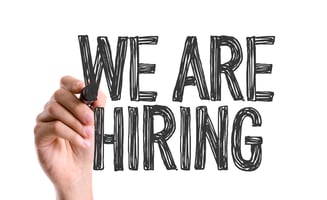ROLE PURPOSE
The Product Manager is responsible for managing a line of products through the full product life cycle from concept, specification, development, production, support, and retirement.
Reporting to the Head of Product Management they are the point of contact for all product enquiries from customers and engineers within their area. They will support the R&D & Sales teams on all matters relating to the function of existing or new and proposed products; so that the company’s product range can be competitively marketed to maximum commercial advantage.
DUTIES AND KEY RESPONSIBILITIES
- Product Vision and Strategy: Contributes to product vision, aligning it with the company's goals and market demands. Supports definition of the overall product strategy and drives the product's direction, features, and positioning accordingly.
- Planning and Product Roadmap: Documents business cases to aid planning and resourcing of the products to be developed. Maintains a roadmap of agreed product business cases that aligns with business and customer strategic goals.
- Value Optimization: Prioritises product features to guide product development based on customer needs, business value, and stakeholder input. Makes decisions based on stakeholder input about what should be developed next and what can be deferred.
- Product Management: Manages the product lifecycle for one or more functional or non-functional capabilities from conceptualization, development, launch and end of life. Ensures customer requirements are documented and validated before build commences and collaborates with cross-functional teams, including engineering, marketing, and sales, to ensure the product meets the desired capabilities, timelines, and design standards.
- Technical Leadership: Provides technical guidance and mentorship to development and production teams. Stays abreast of industry trends and technological advancements to ensure the company's products remain competitive. Ensures that product requirement issues are addressed and makes informed decisions that align with the overall product strategy.
- User Experience Design: Engages designers to ensure that the product meets the needs and expectations of the end-users and stakeholders. Ensures acceptance testing is completed and fed back into the product's design and functionality.
- Stakeholder Management: Communicates product vision, strategy, and capability regularly to stakeholders including executives, clients, investors, and other relevant parties in support of developing current and new business opportunities.
- Cross-functional Collaboration: Works closely with marketing, sales, engineering, production, and customer support. Ensures alignment and communication across teams to achieve successful product launches and ongoing improvements.
- Iterative Development: Embraces a structured approach to development, incorporating feedback and making improvements to the product overtime to improve its productive lifetime.
- Performance Tracking and Optimization: Monitors agreed key performance indicators (KPIs) to evaluate the success of the product. Uses the data to make informed decisions about future iterations, improvements, or pivots.
- Market Analysis: Conducts market analysis to understand customer needs, industry trends, and competitive landscapes. Uses data to make informed decisions about the product's features, recommended pricing, and positioning in the market.
- Compliance: Ensures the product complies with relevant laws and regulations. Works with legal teams as necessary.
- Leadership: Guides and supports external and internal stakeholders, (including client and technical delivery managers, product analysts, and technical leads), to achieve the goals of the product management team in a timely and cost-efficient manner.
- Team Leadership: Where appropriate, leads and manages a team ensuring effective communication, collaboration, and a positive working environment. Develops the team by hiring and retaining the best talent. Provides guidance, training, and professional development opportunities for team members.
ESSENTIAL SKILLS AND EXPERIENCE
- A degree or HNC/HND in an engineering discipline would be desirable or equivalent relevant experience
- Experience in electronics design or engineering environment.
- Having a good understanding of electronics
- The handling of miniature electronic components is preferred.
- A proven track record working with customers.
- Motivated and a good problem solver.
- A team player with excellent communication skills at all levels.
This role description is intended to provide a general overview of the role and its responsibilities. It is not exhaustive and may be subject to change to meet the needs of Pickering.



